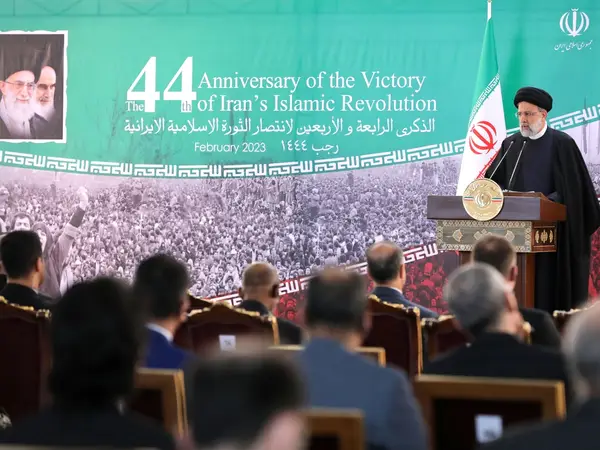As the Islamic Republic is set for state-sponsored events for the 44th anniversary of its establishment on Saturday, European countries are calling for the boycott of the events.
In a statement on Thursday, members of several groups in the European Parliament and national parliaments called on European countries to boycott the ceremonies, and stand in solidarity with “the Iranian people who are fighting for their rights.”
Weeks before the anniversary of Islamic Republic’s establishment, a campaign was launched to boycott the regime’s ceremonies over the violent crackdown on nationwide protests sparked by the death in custody of Iranian Kurdish 22-year-old woman Mahsa Amini.
“We, cross-party Members of the European Parliament and Members of national parliaments, are urging the governments of the EU member states and the European External Action Service to boycott tomorrow's ceremony in Tehran for the anniversary of the Islamic revolution that brought this brutal regime to power. Likewise, EU officials ought to stay away from any such regime celebrations in Iranian embassies abroad,” read the statement.
The Islamic Republic government organizes 10 days of celebrations known as Fajr – literally meaning dawn – but the final day, February 11, is the most important one, in which the regime heavily invests. It already held an event on Thursday with a group of foreign ambassadors to the Islamic Republic with President Ebrahim Raisi in attendance. The government did not release the list of the participants but according to some reports envoys from European countries did not participate in the event – except for Hungary and Poland.
Dismayed by a lack of participation of Western envoys, Raisi said during the event that “The US and the three European countries [that are signatories to the 2015 nuclear deal] were caught up in a state of delusion and made miscalculations” by “meddling in Iran’s domestic affairs,” referring to the ongoing uprising.
Hailing the unanimity of European countries, US Senator Bob Menendez, Chairman of the Senate Foreign Relations Committee, tweeted, “Glad to see broad EU consensus against Islamic Revolution Day in Tehran, except from Orban’s Hungary, which all too regularly embraces autocrats, and Poland, whose silence is disappointing.”
“Nobody should be celebrating a regime with this much blood on its hands,” he added.
The statement by the MEPs added that “Over the past 44 years, the Islamic Republic has murdered tens of thousands of Iranians and has spread terror, misery and war throughout the region and beyond. Together with the Assad regime and Russia, the regime in Iran has carried out horrific war crimes in a conflict that has killed over 500,000 Syrians.”
The statement drew attention to the fact that hundreds of protesters have been killed, “for the 'crime' of demanding freedom, democracy and dignity and above all equal rights for women. Women and even young girls are being harassed, arrested, tortured, raped and murdered for simply refusing to wear the hijab or just for not fully covering their hair. At least 100 Iranians are facing the death penalty over their participation in protests following sham trials where the accused had just 15 minutes to defend themselves.”
Touching upon the growing military ties between Iran and Russia, the statement warned that “Tehran is now intensifying its growing alliance with Russia by supplying Moscow with Kamikaze drones designed to terrorize the Ukrainian people and to destroy their critical infrastructure.”
The MEPs said that celebrating “the rise to power of this odious regime” by European politicians and ambassadors -- even low-ranking diplomats -- would be “an inexcusable violation of our own values and a betrayal of the Iranian people as well as the regime's countless victims in the region and in Ukraine.
“Any official European participation in these celebrations would play into the hands of the Islamic Republic,” they said, adding that the mullahs would like nothing more than to demonstrate that despite their repression of the protests, it is "back to business as usual" with the EU.
